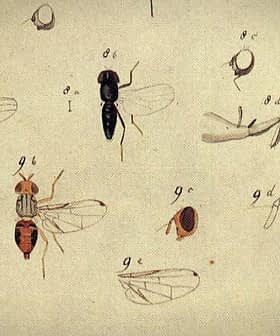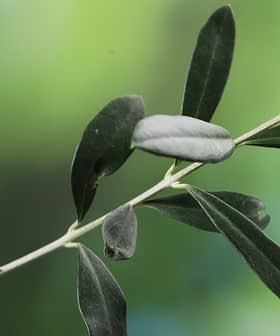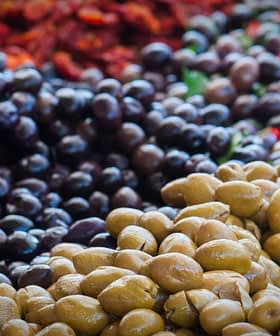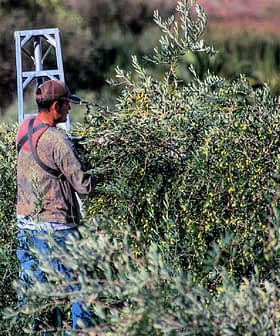 5.5K reads
5.5K readsHealth
Hydroxytyrosol May Help Prevent Colon Cancer Spread, New Research Suggests
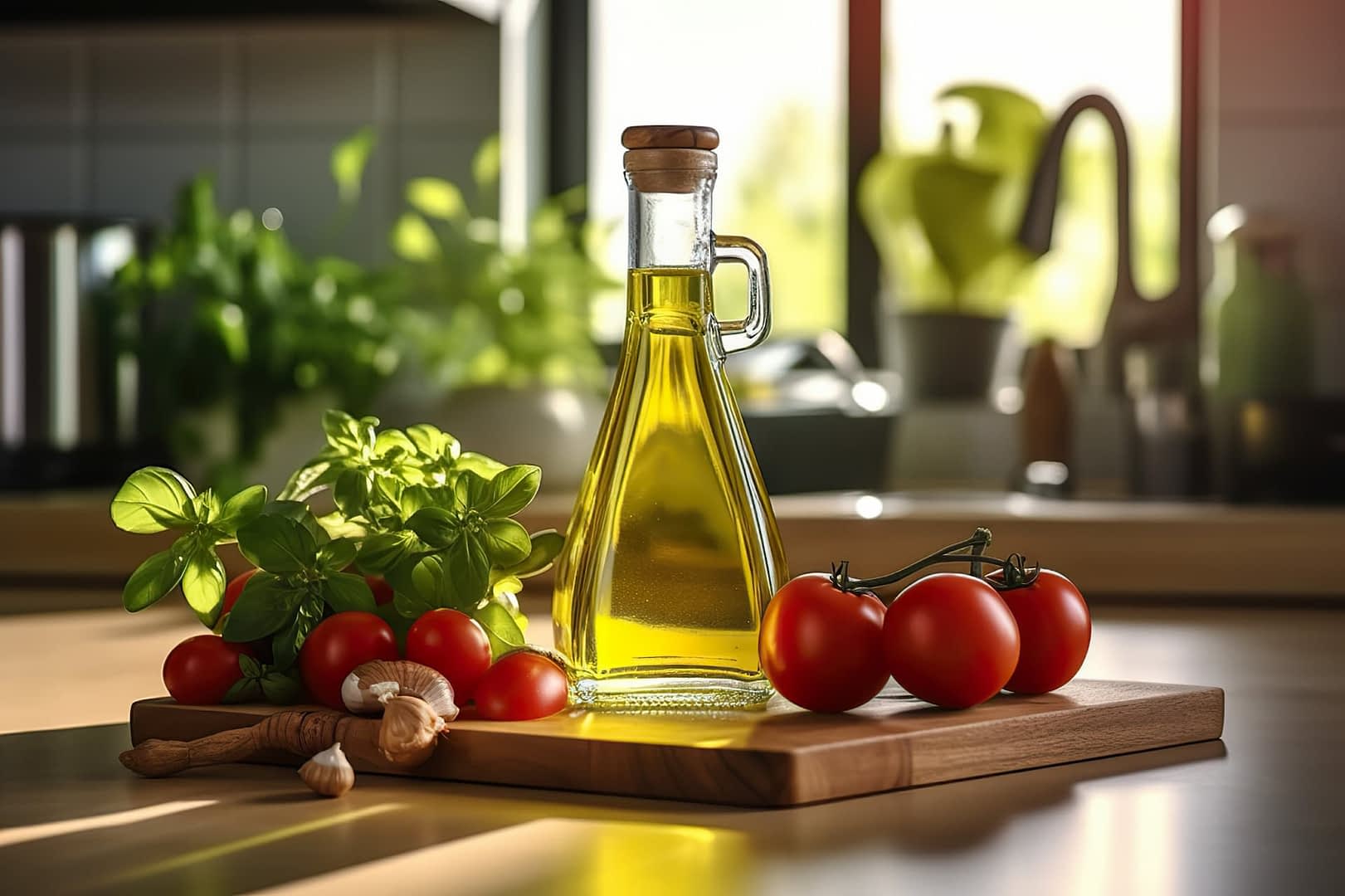
New research has found that hydroxytyrosol in extra virgin olive oil can increase global DNA methylation and target specific genes involved in cancer cell reproduction, potentially preventing the spread of colon cancer. Scientists hope that further research on hydroxytyrosol’s impact on various types of cancer cells will lead to a decreased risk of colon cancer occurrence and other chronic diseases.
New research sheds light on how hydroxytyrosol, one of the main phenolic compounds of extra virgin olive oil, might help prevent the spread of colon cancer.
In a study published in Pharmacological Research, scientists from the Biomedical Institute of Research in Málaga and the Laboratory of Epigenetics of Lipid Metabolism at the Madrid Institute for Advanced Studies (IMDEA) found that hydroxytyrosol increased global DNA methylation.
“DNA methylation is one of the mechanisms that can change the expression of DNA, which can activate or deactivate a specific function,” Andrea del Saz-Lara, a researcher at IMDEA and co-author of the study, told Olive Oil Times. “Just like a switch, it might express an ‘on’ status or an ‘off’ status.”
See Also:Health NewsThe map of those changes includes thousands of modifications. By mapping these alterations, the scientists found that a specific protein involved in cancer cell reproduction, known as the endothelin receptor type A gene, could effectively be targeted by hydroxytyrosol supplementation in a laboratory environment.
The researchers indicated that these findings could pave the way to better understand how treatments focused on hydroxytyrosol may prevent the spread of colon cancer.
According to the World Health Organization, colon and rectal cancer, often called colorectal cancer, is the third most common type of cancer globally, with roughly 1.93 million cases diagnosed annually. In 2020, 916,000 people died from colorectal cancer.
In the study, the scientists noted how increasing evidence demonstrates that following the Mediterranean diet and consuming extra virgin olive oil have preventative and protective qualities against other types of chronic diseases.
“Previous literature told us how broad the impacts of hydroxytyrosol on health could be,” del Saz-Lara said. “It is considered the most relevant among the many phenolic compounds of extra virgin olive oil. So we decided to investigate how it would affect colon cancer cells.”
Hydroxytyrosol
Hydroxytyrosol is a natural polyphenol compound found in olives and olive oil. It is considered one of the key bioactive compounds responsible for many of the health benefits associated with olive oil, particularly extra virgin olive oil. Here are some important points about hydroxytyrosol:
1. Antioxidant Properties: Hydroxytyrosol is a powerful antioxidant. It helps protect cells from oxidative damage caused by free radicals, which are unstable molecules that can harm cells and contribute to various diseases, including cardiovascular diseases and cancer.
2. Anti-Inflammatory Effects: Hydroxytyrosol has anti-inflammatory properties, which can help reduce inflammation in the body. Chronic inflammation is linked to various health issues, including chronic diseases.
3. Heart Health: Research suggests that hydroxytyrosol may have a positive impact on heart health. It can help improve blood vessel function, reduce blood pressure, and lower the risk of heart disease.
4. Neuroprotective Properties: Some studies have indicated that hydroxytyrosol may have neuroprotective effects, potentially reducing the risk of neurodegenerative diseases like Alzheimer’s and Parkinson’s.
5. Anti-Cancer Potential: There is some evidence to suggest that hydroxytyrosol may have anti-cancer properties by inhibiting the growth of cancer cells and inducing apoptosis (programmed cell death) in cancer cells.
6. Skin Health: Hydroxytyrosol may contribute to the anti-aging and skin-protective properties of olive oil when applied topically or consumed regularly.
Extra virgin olive oil typically contains higher levels of hydroxytyrosol compared to refined olive oil because it undergoes minimal processing and retains more of the natural compounds present in olives.
“We hope that this research and the next steps in research it conveys could lead to a decreased risk of colon cancer occurrence,” she added.
Hydroxytyrosol is one of extra virgin olive oil’s most studied organic compounds. Since the 1990s, it has been at the core of research aiming to understand the mechanisms behind the health benefits of extra virgin olive oil.
Researchers believe hydroxytyrosol plays a significant role in slowing the development and mitigating the symptoms of neurodegenerative disorders, diabetes, cardiovascular diseases and lung pathologies.
It is also believed that it may contribute to cancer prevention and curtail the impact of the acquired immunodeficiency syndrome (AIDS).
“Our experiment focused on the cell line that we had at our disposal, the colon cancer cells,” del Saz-Lara said. “Further research will extend the investigation to other types of cancer cells.”
Cell lines are populations of cells that can stay in vitro culture for longer than other types of cells and are usually cloned by one primeval cell. Caco‑2 cell lines, such as those studied in the new research, comprise colon carcinoma cells.
They are the focus of several lines of research because of their ability to spontaneously assume some of the characteristics of other local cells, such as those on the surface of the small and large intestines.
While the impact of hydroxytyrosol in vitro is promising, more research is required to evaluate its potential impact on human health.
“We are seeing a very interesting mechanism in a lab environment,” del Saz-Lara said. “Further studies will evaluate how and if those changes happen in animals and humans.”
One of the qualities of hydroxytyrosol prompting further research is its 99 percent bio-availability. This characteristic allows almost complete integration into the human body upon consumption.
“This work reveals the capacity of certain nutrients or dietary bioactive components to regulate our epigenome, thus reducing the risk of certain diseases,” co-authors Hatim Boughanem and María del Carmen López de las Hazas said.
“This opens the way to the possibility of researching, and, at the same time, incorporating new dietary components into our diet to improve our health and prevent prevalent diseases,” they concluded.




